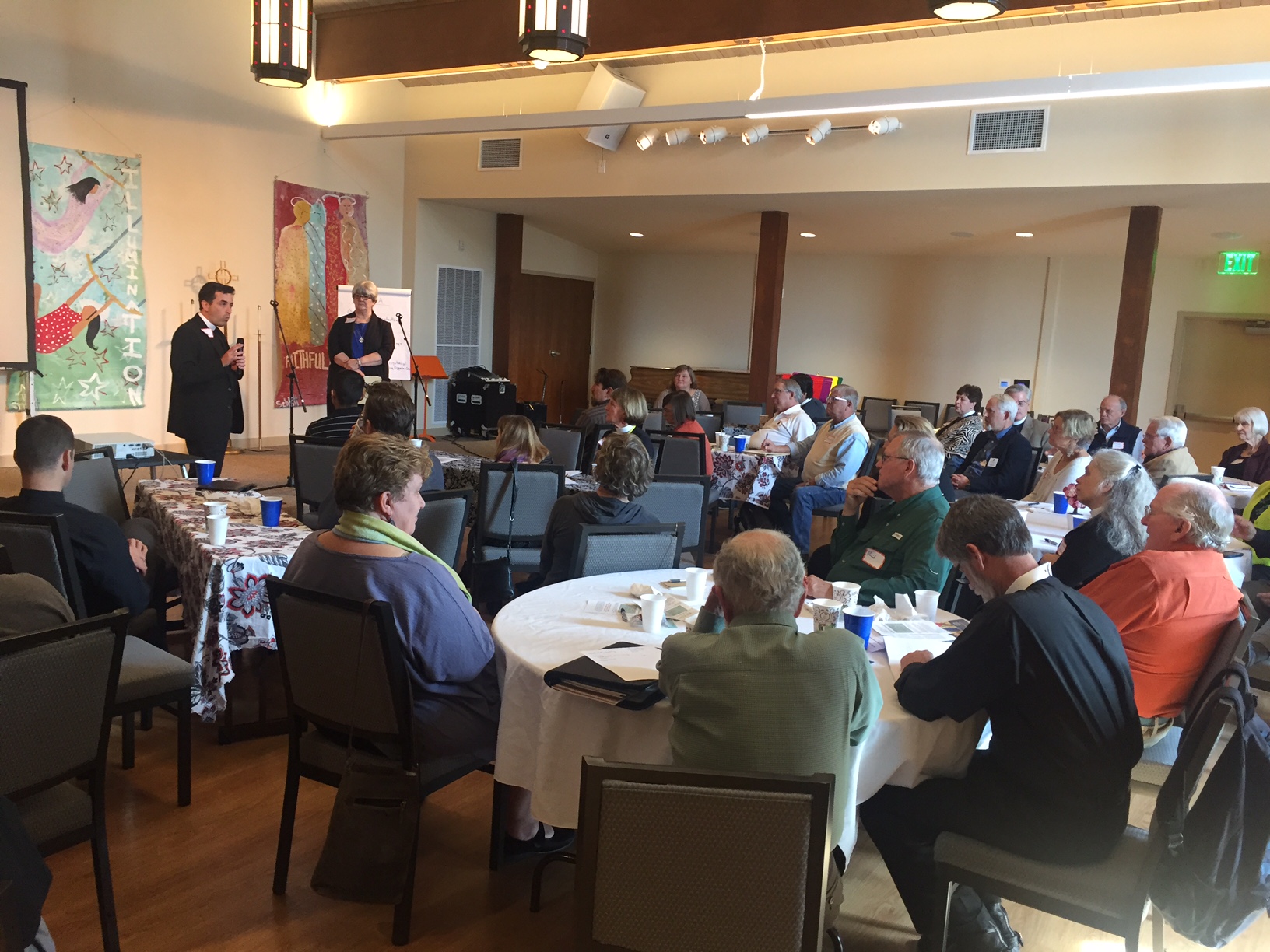
As part of EHF’s effort to support congregations interested in deepening relationships within communities and creating social change for health, EHF is partnering with Austin Interfaith to provide training for leadership development, as well as community engagement and organizing.
Austin Interfaith is a non-partisan, multi-ethnic, multi-issue organization of 43 congregations, public schools, and unions who work together to address public issues that affect the well being of families and neighborhoods.
In November, EHF and Bishop Dena Harrison co-hosted a launch workshop attended by more than 40 representatives from 18 Austin-area Episcopal churches at Good Shepherd on the Hill. Austin congregations were introduced to the special training and congregational leadership development opportunities available over the next year at no cost to Episcopal congregations.
Kathleen Davis, a long-time organizer with Austin Interfaith, gave an overview of how the organization works with congregations to help communities come together to identify and alleviate issues that affect individuals, families and neighborhoods. The organization works to develop leaders and to provide opportunities for institutions to have community conversations focused on issues of common concern.
Paul Skeith has served as a long-time leader with Austin Interfaith, first as a parishioner at St. David’s Episcopal Church and now with the new SoCo Episcopal Community in south Austin. Skeith described how the relational skills he developed through community organizing have helped build the SoCo Community and helped the congregation respond to specific housing and education issues in the neighborhood.
EHF’s ongoing partnership with Austin Interfaith over the next year will provide training and support to congregational leaders interested in:
-
Learning more about the people, the community health challenges, and assets that are available in communities
-
Deepening an understanding of the service mission of the church, particularly in relation to community health needs
-
Building relational skills to be more effective community partners and create social change for health
Have questions or want to know more about how your Austin-area congregation can work with Austin Interfaith to build and expand community relationships? Click here to contact EHF’s Lisa Madry